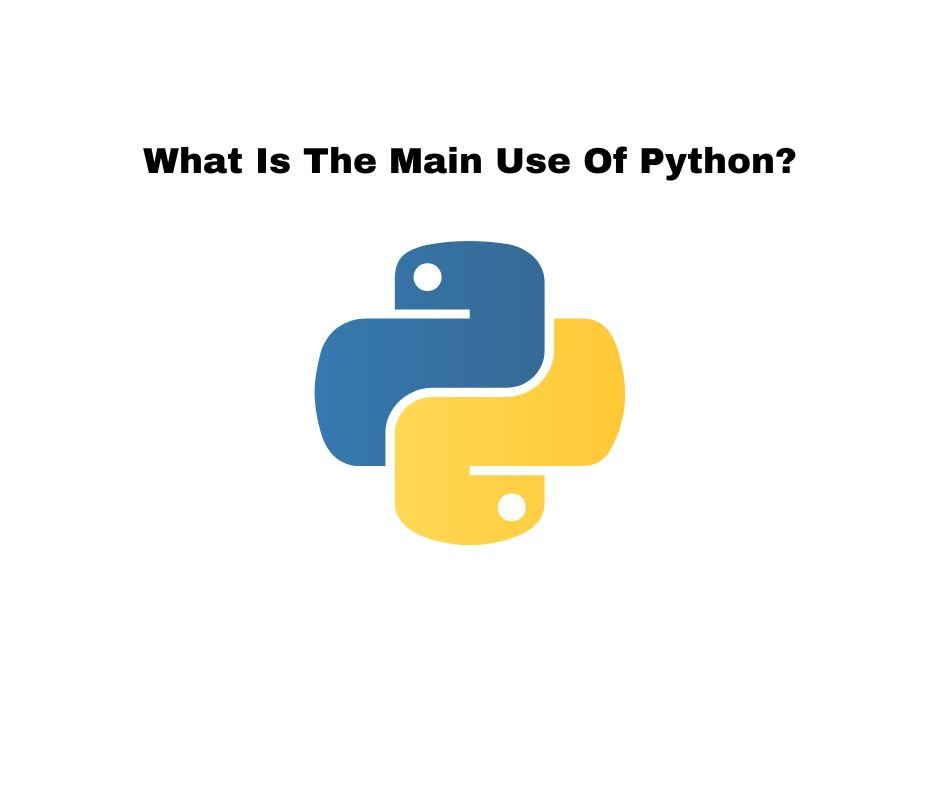What Is Python?
Python is a widely used programming language that has a lot of benefits for developers. It’s easy to learn, even if you have no coding experience, and it has excellent library support for data science, machine learning and AI projects.
One of the main uses of Python is to write short, efficient code. This makes your programs easier to read and understand, and it makes them faster to execute. Additionally, Python is a high level and general purpose programming language – meaning that you can use it to develop complex applications or build powerful websites. Additionally, because Python is an easy language to learn for people with no coding experience, it’s great for both beginner and experienced developers alike.
Python also helps developers easily manage, organize and debug their programs. This means that you can troubleshoot problems more quickly and avoid errors in your code. In addition, Python has excellent library support for data science, machine learning and AI projects – so you can easily build sophisticated applications using these technologies without having to hunt down specific libraries or codes snippets.
Finally, Python is an open source language – so you can freely download and use it without paying any fees or royalties. This makes it a great choice for developing long-term projects or scaling up your business operations with AI or machine learning components.
Analyzing Data With Python Programming Language
Data is one of the most important resources that any business has. It’s through data analysis that businesses can learn about their customers and make better decisions. But data analysis can be complex and time-consuming, which is why many organizations turn to Python to help them get the job done more efficiently. The Python Training in Hyderabad course by Kelly Technologies helps to build the skills needed to become an expert in this domain.
Python is a powerful programming language with a wide range of applications, making it perfect for data analysis tasks. Many organizations and businesses use Python for its ability to handle large datasets quickly and accurately. Additionally, Python has an intuitive syntax that makes it easy to manipulate, manage, and analyze datasets more effectively than ever before. With its versatile libraries and user friendly modules, Python makes data analysis a breeze – even for those with no prior programming experience.
Exploring The Power Of Python For Data Analysis And More
Python is a powerful language that has been adopted by a number of companies due to its versatility and ease of use. It can be used for a variety of applications, including web development, gaming, data analysis, machine learning, and more.
First and foremost, Python is a cross platform language which means that it can be used on both desktop and mobile devices. This makes it more versatile than other languages and makes it easier to develop applications across multiple platforms. Additionally, Python is easy to learn – even if you have no prior programming experience – making it a great choice for beginners or those who want to develop complex programs quickly.
Python also has an intuitive syntax which makes it easy to read and understand even if you are not familiar with programming languages in general. Furthermore, Python is open source meaning that anyone can access the source code and make changes as they see fit. This allows developers to create powerful applications without having to pay expensive licensing fees or wait long periods for updates from the developer community. In short, Python is a powerful language that has many advantages when it comes to data analysis tasks.
Different Ways To Use Python For Businesses And Individuals
Python is a versatile language that can be used for a variety of purposes in businesses and individuals. Whether you’re looking to create web applications, develop software, or use Python for data analysis and machine learning, there are many ways to get started with this powerful language.
When it comes to web applications, Python is a powerful choice due to its easy-to-use syntax and rich library support. In addition to building traditional web applications with HTML, CSS, and JavaScript, Python also supports server side scripting with popular frameworks such as Django and Flask. This allows you to handle all the administrative tasks involved in running a web application while still allowing you to write code in an easily understandable manner.
Python can also be used for developing mobile apps using the powerful Appcelerator Mobile Platform. This platform allows you to build apps using native languages such as Swift or Java while still taking advantage of the power of Python. With Appcelerator Mobile Platform installed on your smartphone or tablet, developing mobile apps has never been so easy!
Also Read: Pandas Reset Index
Python also has a wide range of uses outside of web development and mobile app development. For example, it can be used for data analysis and machine learning using libraries like scikit-learn or TensorFlow. These libraries allow you to quickly build sophisticated algorithms that can automatically analyze data sets or perform complex calculations on various datasets.
In addition, Python is capable of powering complex automation tasks using its rich built-in library support. For example, you can use modules such as mechanize or argparse to easily automate tedious tasks such as logging into websites or filling out forms..
Applications Of Python In Different Industries
Python is a versatile programming language that can be used for a variety of different industries. In this blog, we will highlight some of the most common applications of Python in different industries.
Python is popular for software development, web development, data analysis, automation, system administration, visualization, artificial intelligence and machine learning, etc. It can be used for developing web applications, websites and GUI and non GUI based desktop applications. It’s also used in scripting and gaming, music production and engineering and scientific applications as well.
One of the most important reasons why Python is such a versatile language is its wide range of built-in libraries. These libraries contain all the tools that you need to perform common tasks quickly and easily. This makes Python perfect for big data processing as well as biological and scientific computation. Additionally, Python is widely used in the robotics industry for computer vision, speech recognition and natural language processing.
Python has been increasingly being used in IoT applications such as smart home systems, connected vehicles, and more. Applications in healthcare such as medical imaging or clinical decision support systems are also benefiting from its versatility and ease-of-use.
How Python Is Used To Solve Real-World Problems
Python is a powerful programming language that is used to solve real-world problems. It has many advantages over other languages, such as being able to easily develop web applications. Additionally, Python can be used for data analysis and visualization, which makes it a great choice for scientists and engineers who need to analyze large datasets. In addition to this, Python is also popular for machine learning and artificial intelligence applications.
Scripting is one of the most powerful features of Python. With scripting, you can automate tedious tasks or create sophisticated programs that can interact with other systems. For example, you could use scripting to control your home automation system or your vehicle’s engine remotely.
Python also has great integration capabilities with other programming languages, making it easy to combine its features with those of other languages. This allows you to create more complex programs more quickly and easily than if you were using multiple languages separately.
Python is also well-suited for developing mobile apps due to its cross-platform capabilities and rich development environment. This makes it easy for you to build apps that work on both iOS and Android devices without having to learn multiple languages.
Conclusion
The full article recifest thought to have given you a good understanding of this Python. Python is a powerful and versatile language that can be used for a wide variety of applications in many different industries. It is easy to learn, has an intuitive syntax, and offers great library support for data analysis tasks. Additionally, it is open source and can be integrated with other languages and services. With its versatile libraries and user-friendly modules, Python makes data analysis tasks a breeze, even for those with no prior programming experience.




